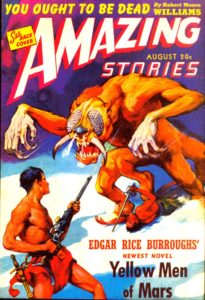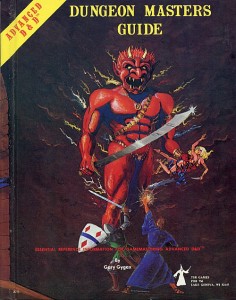Games vs. Stories, Revisited
Posted by Rampant Coyote on July 21, 2016
 I have often posited that you can have a great game, or a great story, but not both.
I have often posited that you can have a great game, or a great story, but not both.
Having spent some time improving (well, reducing the suck level of) my fiction-writing chops, I think I’m ready to offer a more informed opinion:
You can have a great game, or a great story, but not both.
Right, no change. Actually, it’s been reinforced. Now, I feel you can have a great game with an acceptable story, and vice versa. And you can have a great game with a story that stands out among other game stories. I’ve played several of those, and I love them.
By way of further explanation: A game can have a great story if the player has little or no control over the story. But in my opinion, that detracts from the interactivity, and the point of games is interaction, so it in turn detracts from the quality of the game-playing experience.
It’s the difference between active participation and being a spectator. If you are an athlete, you are going to perform your absolute best in a serious competition. You are going to do your best to run up the score, to break personal records, and defeat the competition by a wide margin of safety. As a spectator, however, the sport is most exciting when it is a close game all the way at the end. The winning three-point shot right at the buzzer marks the end of a spectacular game for you, not the running-out-of-the-clock in the last two minutes for the team that has a commanding lead.
This is exactly the problem of story vs. gameplay. In a good story, the princess isn’t just in another castle. No, going into the final act, not only is the princess in another castle, but by raiding the castle looking for the decoy princess, you just unsealed a demonic army that is now ready to attack your kingdom. The main bad guy took you awesome sword and armor for himself, and in your absence your scumbag cousin Clayton got engaged to the real princess. You haven’t become more powerful with an awesome BFG or hitting level 70. No, you are in worse shape than when you started, bruised, bleeding, naked, humiliated, and everything else except broken.
 This is story. And if I was playing an RPG where that crap happened to me in spite of my best efforts, I’d probably quit playing. Although “playing” might be the wrong term for that kind of railroading. I absolutely hate it when I’m playing a game and very carefully avoiding / preventing a potential ambush, only to have a cut-scene happen where I suddenly become STUPID and walk right into it, with bad guys materializing from nowhere.
This is story. And if I was playing an RPG where that crap happened to me in spite of my best efforts, I’d probably quit playing. Although “playing” might be the wrong term for that kind of railroading. I absolutely hate it when I’m playing a game and very carefully avoiding / preventing a potential ambush, only to have a cut-scene happen where I suddenly become STUPID and walk right into it, with bad guys materializing from nowhere.
A good story is about failure. Lots of failures, and successes that came at such a dear cost they might as well be failures, all the way to the end where the hero snatches victory from the jaws of defeat. But playing a game is about minimizing those failures.
So… yeah. As a game developer, you have to compromise one or both. Now, this isn’t a message of doom-and-gloom, and I’m right there with you if you want to throw around some favorite game stories as counter-examples. I love RPGs partly because they are so story-heavy. I’ve got a bag of tricks of my own I’m trying to use to get around this fundamental limitation. But the important part is recognizing that it’s a fundamental limitation.
Filed Under: Design, Writing - Comments: 5 Comments to Read
T2.0 said,
I agree, and I think this is the same kind of dilemma that faces the director who has to make a movie based on a true story. He may choose to scrupulously respect the facts, or he may comes up with an entertaining movie to watch, but he can’t do both.
Darius said,
I agree that it’s typically done poorly, but I don’t think that setbacks and failures are completely incompatible with games and gameplay. I think a lot of it is in how you present it. Usually the badass hero temporarily becomes a weakling, which goes completely against both the gameplay and their established character. Or the player is ambushed unfairly, out of nowhere. If the game sets up a good reason for why the odds would be against them, or why they might have missed the enemies that were right there, or has the character fail because of a previously established flaw, then I think it can work.
I think of the end of Red Dead Redemption, Marston dies, which is not a happy ending. But it’s not done in a cutscene, it establishes that a lot of men came to take down Marston, because they know how dangerous he is, then you get a chance to try to fight your way out, but there are just too many of them. I didn’t feel like the game cheated and it felt like the proper ending to the story.
You can also have the character fail for reasons other than them failing to be sneaky, perceptive, or strong enough to take on the enemies. The Max Payne games typically have Max fighting, and slaughtering, bad guys, but then finds out he’s killing the wrong guys. Failure, but it’s not due to the game cheating. Or in the second game, Mona, Max’s love interest, gets killed in a cutscene, Max has Winterson, the woman that kills Mona, at gunpoint, but he doesn’t shoot because Winterson is a cop and he can’t bring himself to kill her, at least not until she kills Mona first. Failure and unhappiness, but again the game wasn’t cheating, and it completely fit within the story.
It’s tricky, but I think that if you set your story up carefully, both in terms of how the setbacks work into the story and in how they come about mechanically, then it can really work.
Maklak said,
I recently stumbled upon an article about how “interactive movie” is an oxymoron.
http://www.designersnotebook.com/Lectures/Challenge/challenge.htm
And unrelated, but here is “No Twinkie Database” – a series of articles on mistakes in computer game design.
http://www.designersnotebook.com/Design_Resources/No_Twinkie_Database/no_twinkie_database.htm
VMaikel said,
One of the biggest reasons that you can’t combine great gameplay with a great story is because of the difference between Immersion and Flow.
While both make you forget the world around you and allow you to fully focus on the application, they require a different way of thinking.
If you are fully immersed in a story you are thinking about its characters and what the most interesting story arc would be for them.
If you are in the flow state you are thinking about the system and how you can manipulate it’s variables to get to a win state.
You cannot be fully focused on the most interesting story and the most preferable win state at the same time.
By requiring the player to constantly switch between the 2 different ways of thinking it’s impossible for them to stay immersed/be in the flow zone, therefore damaging the experience overall.
Ludomedia #26 | Fischers Ludokultur said,
[…] Jay Barnson: Games vs. Stories, Revisited […]